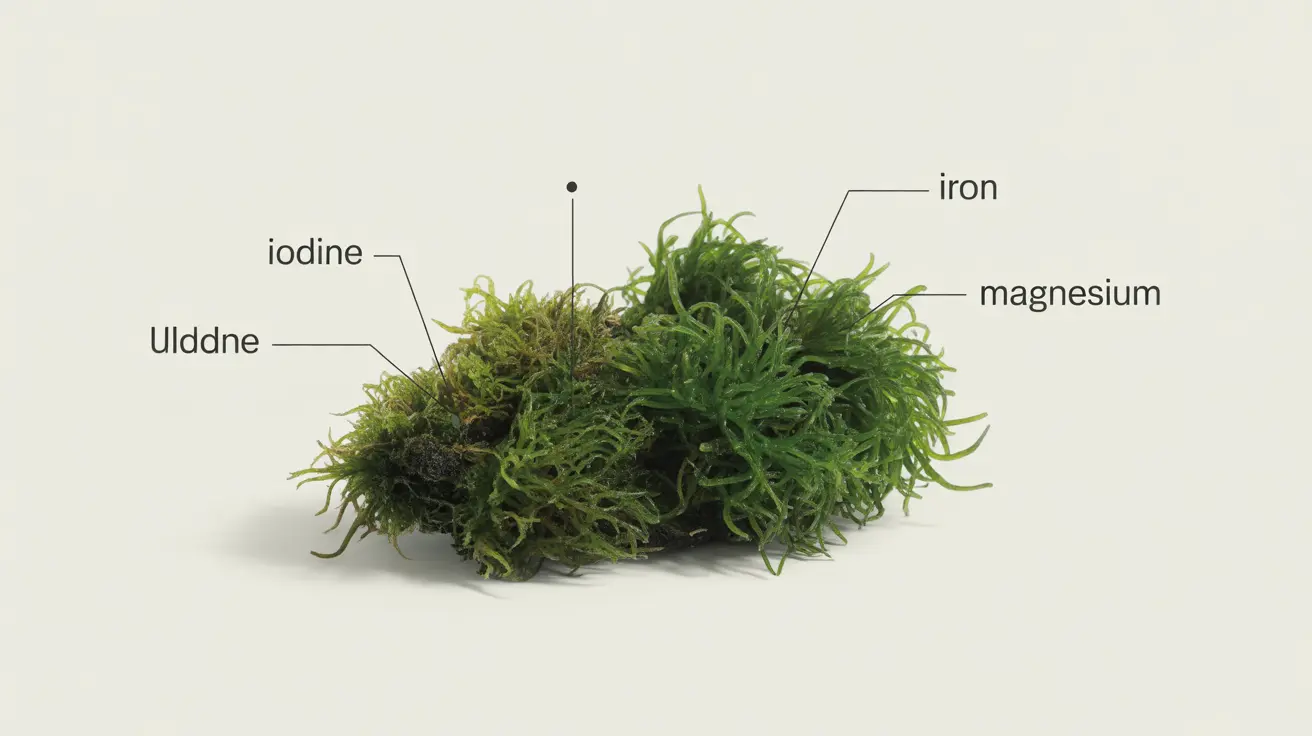Sea moss, also known as Irish moss or Chondrus crispus, is a type of red algae that has gained significant attention in the health and wellness community. This remarkable sea vegetable has been used for centuries in traditional medicine and as a natural food source, particularly in Caribbean and Irish cultures. Today, it's celebrated for its impressive nutritional profile and potential health benefits.
With growing interest in natural health solutions, understanding what sea moss is and how it can benefit your health has become increasingly important. This comprehensive guide explores everything you need to know about this marine superfood, from its nutrient content to its various applications in supporting overall wellness.
Understanding Sea Moss and Its Nutritional Profile
Sea moss is a species of seaweed that grows primarily along the rocky parts of the Atlantic coastlines of Europe and North America. In its natural state, it appears as a purple-brown to yellowish seaweed, but when processed, it typically takes on a lighter, more translucent appearance.
This marine plant is particularly notable for its rich nutrient content, including:
- Iodine
- Iron
- Magnesium
- Zinc
- Vitamin B12
- Calcium
- Potassium
- Selenium
The Connection Between Sea Moss and Thyroid Health
One of the most significant benefits of sea moss is its potential support for thyroid function. The high iodine content makes it particularly valuable for maintaining healthy thyroid hormone production, as iodine is a crucial component in synthesizing these hormones.
The thyroid gland requires adequate iodine to:
- Produce essential hormones that regulate metabolism
- Support proper energy production
- Maintain healthy cell growth
- Regulate body temperature
Key Health Benefits of Sea Moss
Beyond thyroid support, sea moss offers several potential health benefits:
Immune System Support
The high mineral content and antioxidant properties of sea moss may help strengthen the immune system and protect against oxidative stress.
Digestive Health
Sea moss contains natural prebiotic fibers that can support gut health and promote beneficial bacteria growth in the digestive system.
Skin Health
The collagen-like carrageenan in sea moss may help improve skin hydration and promote healthy skin cell function when used both internally and topically.
Respiratory Health
Traditional uses include supporting respiratory health, as sea moss may help soothe irritation in the respiratory tract.
Safe Usage and Proper Dosage
When incorporating sea moss into your diet, it's essential to follow appropriate dosage guidelines:
- Start with 1-2 tablespoons of sea moss gel daily
- Monitor your body's response
- Consider consulting a healthcare provider before starting
- Use only high-quality, properly sourced sea moss
Potential Risks and Considerations
While sea moss offers numerous benefits, there are some important considerations:
- High iodine content may affect those with thyroid conditions
- Possible contamination with heavy metals if not properly sourced
- Potential interactions with certain medications
- Risk of allergic reactions in sensitive individuals
Frequently Asked Questions
What is sea moss and what nutrients does it contain?
Sea moss is a type of red algae rich in minerals including iodine, iron, magnesium, and zinc. It also contains vitamins, particularly B12, and important trace minerals that support various bodily functions.
How does sea moss support thyroid health and why is iodine important?
Sea moss supports thyroid health through its high iodine content, which is essential for producing thyroid hormones. These hormones regulate metabolism, energy production, and various other bodily functions.
What are the potential health benefits of consuming sea moss?
Sea moss may support immune function, digestive health, skin health, and respiratory function. It also provides anti-inflammatory benefits and may help with energy levels and overall wellness.
How much sea moss gel should I take daily to be safe and effective?
A general recommendation is to consume 1-2 tablespoons of sea moss gel daily. However, it's important to start with a smaller amount and gradually increase while monitoring your body's response.
Are there any risks or side effects associated with eating sea moss?
Potential risks include excessive iodine intake, heavy metal contamination if poorly sourced, and possible allergic reactions. Those with thyroid conditions should consult healthcare providers before use.




